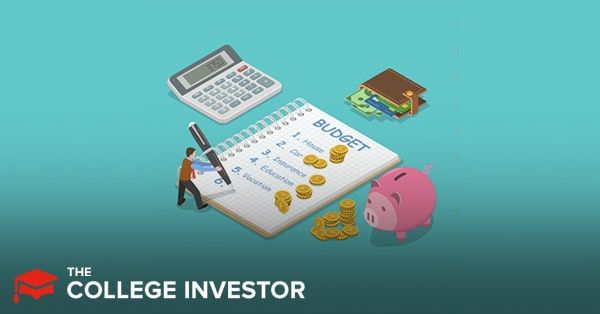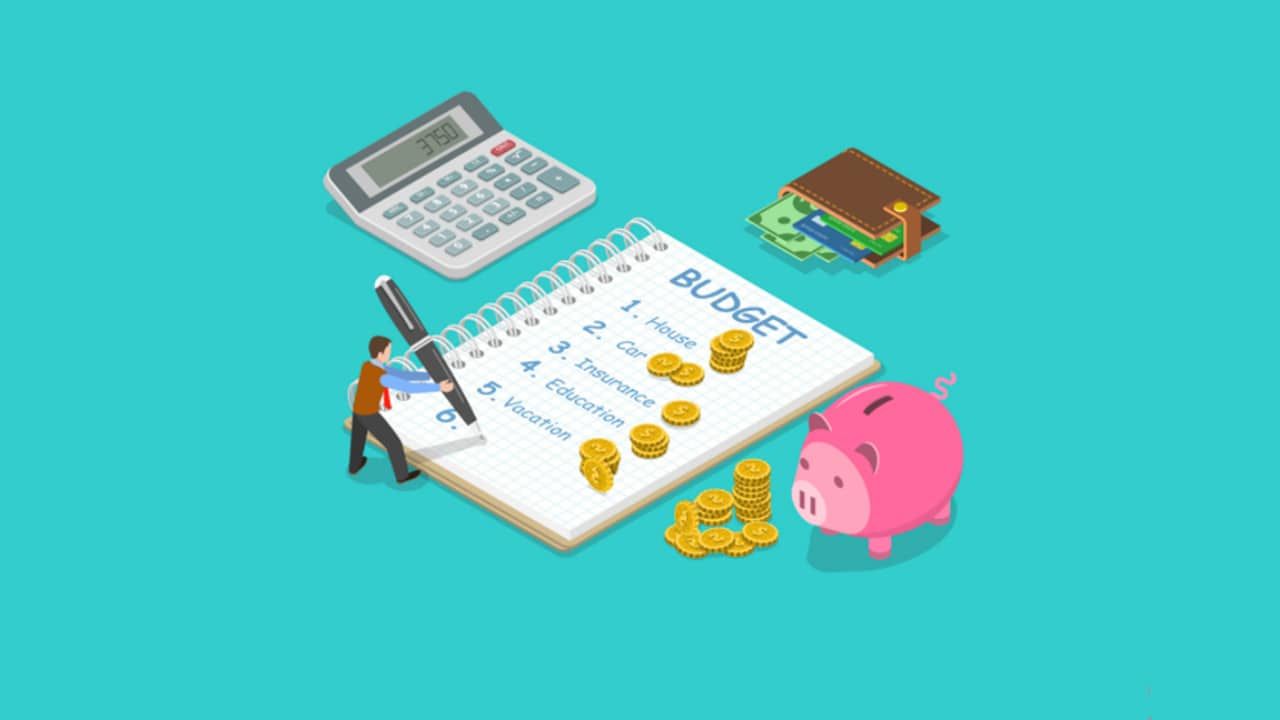
If there’s one thing that bothers me in the personal finance world, it’s when everyone is grouped into one little box.
It doesn’t work. Personal finance is personal.
While the same set of principles will uniformly apply when it comes to creating real, lasting wealth, there are a hundred different paths that will lead you to the same end result.
Maybe you’ve felt this way about budgeting.
If you've tried different budgeting stratgies and continually fail there’s a good chance you’re following advice that doesn’t suit your personality or natural tendencies.
It’s time to find the budget that best suits you. Here are three popular ways to budget plus different methods you can use to carry them out. (Which may make all the difference for you!)
The Tools
Before we talk about budgeting styles, we also need to talk about the tools you need to use. A budget isn't helpful if you never look at it or work on it. And if you don't use a tool that you're comfortable with, it's not happening.
Just like different style budgets work for different people, so do different tools.
Depending on your style, you may like using an app on your phone, computer software, a spreadsheet, or even a good old fashion pen and paper (or planner).
While we have some recommendations here, don't feel like you can only do these style budgets with that recommendation. Any budget can be done using a planner or pen and paper. Technology isn't for everyone!
Okay, onto the budgets.
Zero-Based Budget (Useful for a Wide Variety of People)
A zero-based budget is the most popular and can be a good starting point if you’re new to budgeting. With a zero-based budget you “spend” all of your money before it even reaches your bank account. Every single dollar is accounted for.
To use this budget first tally up your monthly income. Next, take a good look at all of your regular monthly fixed expenses and list them out. After that start listing all of the variable expenses you have. Lastly, make budgeting accounts for savings goals. (And don’t forget to account for yearly expenses like property tax and insurance.)
If you brought home $2,500 per month here’s an example of what a zero-based budget would look like:
Starting Balance: $2,500
- Rent: $700
- Food: $500
- Debt Repayment: $355
- Health Insurance: $60
- Car Insurance: $30
- Transportation: $100
- Utilities (electric/water/gas): $300
- Internet: $21
- Netflix: $9
- Entertainment: $100
- Clothing: $50
- Emergency Fund: $250
- Car Repair Fund: $25
Leftover Money: $0
When you’re using this type of budget you’re being very intentional with your money. You make a plan and stick to it.
Pros: If you’re working with a regular salary each month you can essentially create one zero-based budget and use it over and over. (As long as you plan monthly for big one-time expenses that require lump sum payments.) Of course, there will be at least something you’ve forgotten to include and unexpected expenses will pop up. That’s a fact of life. You’ll just need to tweak your budget during those times.
Cons: If you’re working with irregular income zero-based budgeting can be a little trickier. To make it work average out your past few months’ worth of income and go off of that or budget based off of your lowest expected income.
The other downside is that zero-based budgeting can feel restrictive to some – especially, since it’s easy to forget to budget for life’s little treats like a morning coffee or new pair of shoes. If you fail to honestly account for your spending a zero-based budget is not going to work.
Different Ways to Carry Out a Zero-Based Budget
If you want to create your own zero-based budget there are a few different ways you can go about it:
YNAB Budgeting Software – YNAB (You Need a Budget) is budgeting software that is built around the zero-based budget. With YNAB you’ll create a budget based on your income and have a goal of getting one month ahead. YNAB will track your spending for you and let you know how your spending is lining up with the budget you created.
YNAB is an excellent program for anyone who likes to look at their budget often and wants spending tracked for them. Read our full YNAB Review here.
Cash Envelope System – The cash envelope system, made popular by Dave Ramsey, is a method in which you draw out cash for your budgeting categories at the beginning of each month and divide them up amount different envelopes. Each envelope represents a different spending category (food, entertainment, or clothing, budgeting for Christmas gifts, etc) and when the money is gone it’s gone.
This is a good method for people who feel the burn when spending cash. There is a digital method for this as well called Qube. Qube links to your debit card and you assign your debit card to certain envelopes to spend. It's a great tool if you like this approach. Read our full Qube Money review here.
Spreadsheets or Pen and Paper – You can use a budgeting spreadsheet like this or plain ole’ pen and paper to create a zero-based budget and track your expenses throughout the month. Check out this list of free budgeting spreadsheets. There are also budgeting spreadsheets that you can purchase that are pretty advanced.
For example, Tiller allows you to create advanced budgeting spreadsheets that also connect to your bank and update automatically. Check out our Tiller review here.
This is a good method for the hands on type who likes to track everything manually.
Pay Yourself First Budget (Useful for Savers)
When I first started trying to improve my personal finances, I used a zero-based budget. I was running a pretty tight ship and at that point the zero-based method worked.
Over the past couple of years my expenses have changed and my income has been all over the place. Now a zero based budget just stresses me out. Instead, I focus on paying myself first and not sweating the small stuff.
This method works great if you’re already hyper aware of your spending and have no problem living below your means.
Here’s how this method works:
Automate Savings and Retirement – The first step is automate your savings and retirement. If you’re working on paying off debt, you can automate that too.
To start take a good look at your regular income and expenses and make savings and retirement goals. Now divide those yearly savings goals by 12 and set up an automatically monthly deposit that goes toward your savings goals.
(I personally use Capital One 360 to create multiple accounts for different savings goals. I then have a certain amount deposited into each goal. My retirement contributions and college savings for kids are automatically invested on the same day each month.)
Pay Regular Bills and Decide What to Do with Possible Surpluses - After all saving goals are hit and regular bills are paid you may still end up with a surplus of money at the end of the month. If so, you get to decide how to spend it. You can send it straight to savings or you can spend it on a night out. You’ve met your goals so it’s up to you.
Here are things you need to have in place to really make this work:
- Savings for one-time expenses (like car insurance premiums, car repairs etc.)
- An emergency fund
- Good spending habits
If you’re just starting out with budgeting you may find that spending a few months tracking your expenses with a zero-based budget and then switching to this method will work well.
The 50/20/30 Budget (Useful for Those Who Like Hard and Fast Rules + Have Spender Tendencies)
The 50/20/30 budget could come in handy if you prefer to have a set of rules to follow when deciding what to do with your money.
I’m personally not a huge fan of this type of budgeting but that doesn’t mean it won’t work for you!
With a 50/20/30 budget you divvy up your income into these categories:
- 50% goes toward essentials, like housing, transportation, utilities, and groceries
- 20% goes toward saving, retirement, and debt repayment
- 30% goes toward personal lifestyle choices including entertainment, internet, phone bill, childcare, etc. (pretty much everything that doesn’t go in the first two categories!)
These are just general guidelines. If you can increase your savings and retirement and lower one of the other two categories that’s never a bad decision.
You can track these rules in tools like Quicken. Quicken allows you to categorize your spending and then track how you're doing. It's much more of a spending tracker, but it helps you see how you're doing with rules you setup for yourself. Read our Quicken review here.
Find A Budgeting Strategy That Works For You
In general there’s no right or wrong way to budget. I do believe, though, that there’s a right or wrong way to budget for your specific personality and stage of life. If you’ve repeatedly failed to set and stay on a budget then you may have been trying to make a method that doesn’t match your personality work for you.
What method do you use to budget?

Robert Farrington is America’s Millennial Money Expert® and America’s Student Loan Debt Expert™, and the founder of The College Investor, a personal finance site dedicated to helping millennials escape student loan debt to start investing and building wealth for the future. You can learn more about him on the About Page or on his personal site RobertFarrington.com.
He regularly writes about investing, student loan debt, and general personal finance topics geared toward anyone wanting to earn more, get out of debt, and start building wealth for the future.
He has been quoted in major publications, including the New York Times, Wall Street Journal, Washington Post, ABC, NBC, Today, and more. He is also a regular contributor to Forbes.
Editor: Clint Proctor
